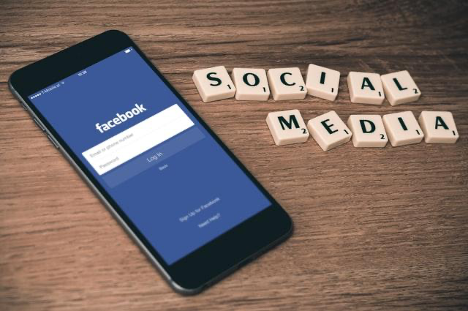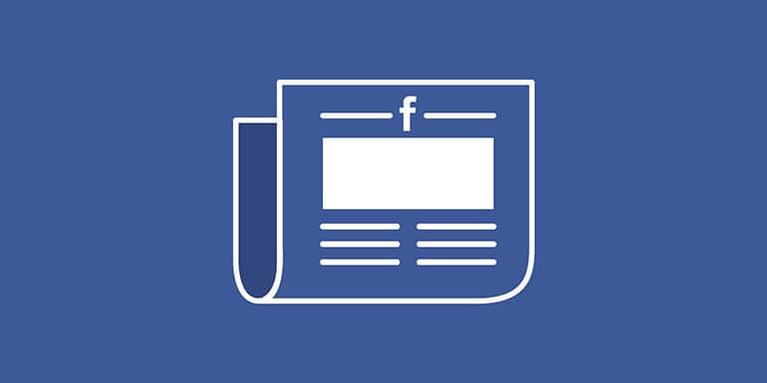
More than three in seven people in the world are Facebook users. In real terms, the figure translates to more than 2.7 billion active users.
What makes Facebook an effective channel for advertising is not only its massive reach. More importantly, it allows any mom-and-pop shop to scale its business using the social media platform.
While Facebook is not a great equalizer, it narrows the gap between the haves and have-nots.
A small business can run a cost-efficient ad campaign that will help drive sales. But they need to employ the right strategy to maximize returns for their investment. It is not as simple as putting in money and expecting profits in return. That's why we wrote this article on how to advertise on Facebook in 2025 – what’s your Facebook advertising strategy?
You may also like: The 5 Best Marketing Campaigns of 2025
Helpful Strategies for Your Facebook Ad Campaign
- Strive for authenticity - Who are you, and more importantly, how would you like people to see you? Those are tricky questions since they do not necessarily demand a straightforward answer. But people gravitate toward the company because they know they are not being lied to or manipulated. Who you are will influence the tone of your voice.
- Charting your customer journey - The next step is to know who your customers are. The customer journey is different from a customer profile. The journey starts from the time they signified the problem to the point where they identified a solution. Facebook Insights is still the handiest tool to map out how your customers are interacting with your page. It will tell you what type of ad content to produce. Using a blog post to target your customers is a waste of money when a click ad would have been the better choice. It all depends on the analytics since they will give you an accurate glimpse into your buyer's persona.
- Use Messenger to your advantage - Adding Messenger to your ad content will drastically shorten their customer journey. Clicking on Messenger will enable them to connect to a customer representative right away who can answer all their questions. You can also use bots to make your company more responsive 24/7.
- Test your ad - The pandemic brought marketing in flux, making it harder to predict customer behavior. It is why you should always test the waters, so to speak, using A/B testing. The A/B testing allows you to revise your ad's different elements, including placement and content, to optimize its performance. You can compare your various ads and see which one is more effective in reaching out to the audience and directing them to your sales funnel. You can even test your previous ads and see how they perform under the new landscape.
- Exploit AI - Do you know that you can automate your ad placements so that you can reach your audience when they are most likely to spend? Facebook calls this liquidity, which means that you direct your money toward the channel, leading to the strongest impression. Facebook has found out that automating bidding and placement will allow the advertiser to save on incremental costs. Machine learning also enables you to be more prudent about how you are distributing your ad spending.
- Employ omnichannel approach - As you may know, people use their smartphones to shop online. For instance, this year, 54% of e-commerce sales will come from mobile. But it does not mean that you stack all your investments to run ads targeting mobile consumers. You need to combine your approach to reach your target audience across multiple channels. It could mean digital, mobile, analog, desktop, or a brick-and-mortar store.
How Much Is My Budget?
The bigger question is, how much budget should you set aside for your Facebook ad campaign?
Facebook ad revenues continue to rise. For instance, in 2019, the ad revenue was nearly $68 billion, projected to hit $81 billion in 2020, despite the pandemic. Meanwhile, the social media platform is expected to hit $95 billion this year.
More than ever, it is the ideal time to invest in Facebook ads since the prices are down across the board. For example, in March 2020, the cost-per-click on the platform dropped to just nine cents per click from 11 cents in January 2020.
The beauty of Facebook is you can run your campaign on a small budget. You can set a budget of 70 centavos per CPC, for instance. You can start at $5 per day for your Facebook ads, which is equivalent to $150 per month.
Multiple elements come into play when strategizing your budget, and it is best if you solicit the help of a social media strategist to get the most out of your investment.
Key Trends to Watch Out For
As a bonus, here are some of the trends in 2025 that may impact your Facebook ad strategy.
- The new normal - The coronavirus changed the landscape like no other. Even with the vaccine rollouts, experts anticipate 2021 to be the same as 2020 in terms of its effects on nations' economies. Business owners are penny-pinching as they see their resources shrink. You have to decide whether to ramp up your Facebook ad spending or be more conservative with your marketing budget. However, you must know that fortune rewards the brave. Those who put out money during the global financial crunch in the late 2000s were better positioned to enjoy the windfall.
- The platform continues to diversify - Video is still the benchmark for Facebook ads as it elicits the most positive reaction. But lately, users are already seeing ads using augmented reality for a more significant impact.
- E-commerce is growing quicker than ever - One offshoot of the pandemic is that consumers who have never tried online shopping were purchasing on e-commerce sites out of necessity. According to Statistica, e-commerce sites logged 22 billion visits in June 2020 compared to a little more than 16 billion in January 2020.
But it should be pointed out that businesses that are more willing to meet the new challenges are reaping their efforts' success. The growth of e-commerce is particularly relevant for brick-and-mortar stores, greatly affected by the pandemic.








